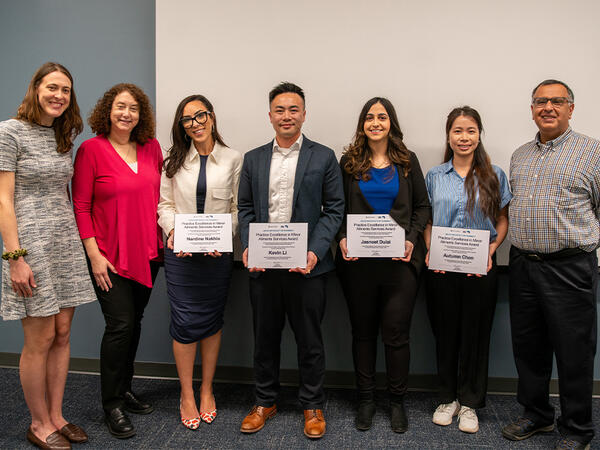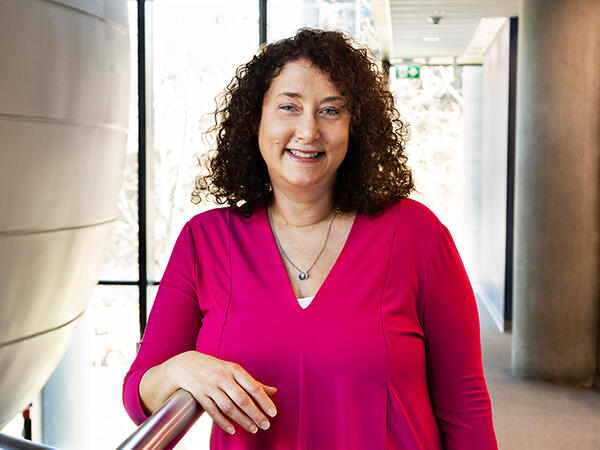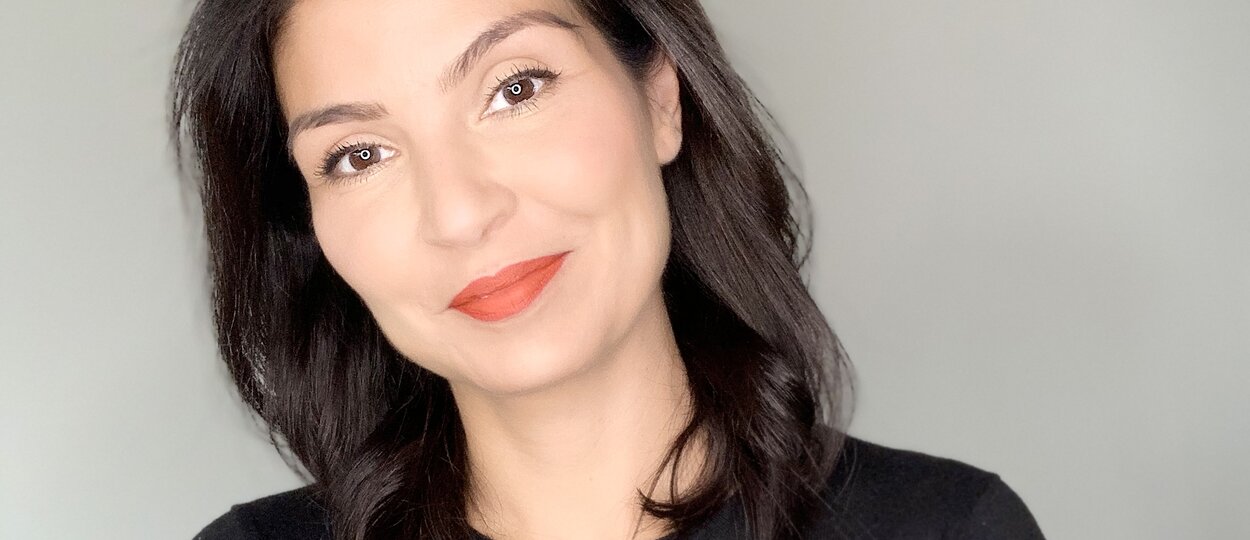“If there is no path set before you, grab your inner machete and clear YOUR path one swing at a time.”
When Béatrice Séguin graduated with a PhD in Pharmaceutical Sciences in 2004, just over half of her classmates were female. She remembers feeling judged by peers and professors for not fitting into the “serious science type” box.
Today, the Leslie Dan Faculty of Pharmacy’s Pharmaceutical Sciences Graduate Program student population is more than 60 per cent female, but this does not reflect the global reality.
According to recent UNESCO data, 30 per cent of female students select STEM-related fields in higher education and less than 30 per cent of researchers worldwide are women. A recent Globe and Mail investigation of Canadian public institutions — including universities — found that women are less likely to hold leadership positions, serve on executive teams, and are out-earned by men – even when working at the same organization at the same management rank.
To recognize the International Day of Women and Girls in Science on February 11, PharmSci alumna Béatrice Séguin shares her inspiring career path that transported her from a “nebulous” think tank position to her current gig as co-founder and Chief Innovation Officer of a cosmetics brand.
How did you become interested in pharmaceutical sciences?
My undergraduate degree was in Microbiology and Immunology and I followed it with a Master of Science in Medical Genetics and Microbiology. Shortly after graduation, I was fortunate to find a position as research scientist in a biotech start-up that was focused on drug discovery.
It was an exciting time as the company was small and although my role was in the Research and Development lab, I was exposed to all aspects of the business and worked with a great female mentor, Dr. Renée Mosi. This is when I became interested in connecting the dots between drug discovery, pre-clinical/clinical trials and commercialization.
A degree in Pharmaceuticals Sciences was a great next step that would build my base, round out my knowledge and allow me to play cross-functional roles in any organization. Pursuing a doctorate was also crucial to eliminating barriers to my career advancement with respect to earning the credibility and credentials for leadership roles in the future.
How did your work in pharmaceutical sciences lead you to your role as co-founder and Chief Innovation Officer of a Cosmetics company?
My transition away from traditional research science started when I was faced with the choice between postdoctoral lab positions versus a “nebulous” position with a think tank that involved working with governments and organizations in emerging markets and developing countries. I chose the lesser-known path and spent six unforgettable years in a global health development role that expanded my mind, my network and led to my next career move as Director of Business Development in a privately held medical device and health informatics company.
At the beginning of my foray into the private sector, I became a mother, a life-altering and a forever full-time labour of love. During my two maternity leaves I had time to reflect on my future life goals. I was approaching my mid-career point and the so-called high growth years of my life. I knew I needed to carefully plan for this next phase. I created a list of my key requirements, one of which was the realization that whom you report to is almost more important than the company or organization you work for. After some deep introspection, plus a serendipitous meeting, I recognized that my next career move needed to include the pursuit of two passions: science, plus fashion and design.
The serendipitous meeting is what led to my position as Director of Innovation and Sales at a cosmetics research, development and manufacturing company. I reported directly to the CEO in this position so in three years, I acquired what felt like 10 years of knowledge and most importantly, the confidence to do something I’d always dreamed of: becoming an entrepreneur.
My latest venture as co-founder and Chief Innovation Officer of a beauty brand is a culmination of the last 25 years of my life and a marriage of my passions for science, business and fashion.
What does a “day-in-the-life” look like as co-founder and Chief Innovation Officer of MOB Beauty?
My fundamental role is to create and promote a culture of innovation across the company. Innovation is not a light switch you turn on; it’s a process that is nurtured by curiosity and collaboration. I hope to give our team the freedom to think out of the box and feel safe to test their ideas even if it means failure.
My pharmaceutical science background combined with an understanding of research, development and regulatory processes is a huge asset. I serve as a bridge between R&D and marketing. I need to understand what we want our customer to experience and how formulation chemists can achieve (or not achieve) the desired product in a scalable way.
What are some of the challenges that you’ve had to overcome within your career?
One external challenge in academia was being judged by certain peers or professors — irrespective of gender — because I didn’t fit the “serious science type” box. Fortunately, I had several strong female role models, including Professor Micheline Piquette, who taught me to be true to myself, and so I was.
Eventually my work — and the results it produced — spoke for itself. I have faced circumstances where my ideas aren’t “heard” until validated by a male counterpart. On the other hand, I’ve had supportive male role models like Professor Jack Uetrecht, my PhD supervisor. One seminal moment in my career was when a prominent collaborator candidly shared with me that my problem was letting others underestimate me because I wasn’t seeing my own full value. That is when the concept of “leaning-in” clicked for me.
What impact do you hope to have on society broadly? How do you measure success?
Society starts at home. In my microcosm, I hope that I serve as a role model for my daughter — as my mom and grandmother were for me — and show her that no one but you define who you are or what you can achieve. For my son, I hope that he sees that strong independent woman are not a threat to his own achievements, but rather allies. If I achieve this, I will feel successful.
I have also made it my personal mission to lead with kindness and be purposeful in celebrating or recognizing other women’s work because ultimately, my role is to pay it forward and make sure I have a part, however big or small, in helping them reach their own full potential.
Do you have any advice to women pursuing graduate education in STEM-field?
Be true to yourself. If there is no path set before you, grab your inner machete and clear YOUR path one swing at a time, even if you have no idea where it will lead.
If people don’t let you lean-in at the table, find a new table to sit at, or better yet; go build your own table with like-minded individuals!
More News
Image

Advancing innovation in minor ailments care
Forum highlights pharmacy’s role in innovation, research, and policy change.
Read More
Image

Jeffrey Henderson Receives Prestigious Connaught Innovation Award
Award will support research to advance novel method of modifying cells for testing new gene therapies.
Read More
Image

Dean Lisa Dolovich reappointed for second term
Professor Lisa Dolovich has been reappointed for a second term as Dean of the Leslie Dan Faculty of Pharmacy, University of Toronto, effective July 1, 2025, to December 30, 2030.
Read More
